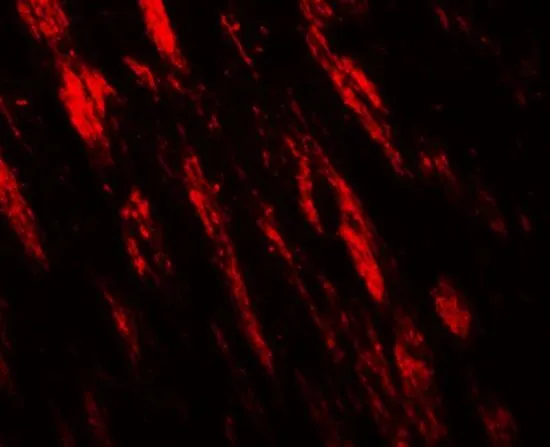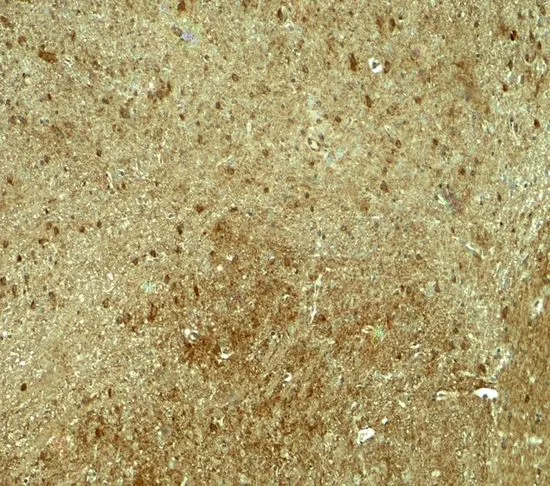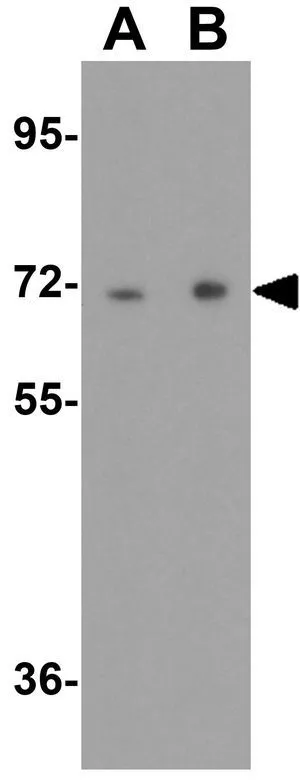
IHC-P analysis of mouse brain tissue using GTX31608 PJA1 antibody. Working concentration : 20 μg/ml
PJA1 antibody
GTX31608
ApplicationsWestern Blot, ELISA, ImmunoHistoChemistry, ImmunoHistoChemistry Paraffin
Product group Antibodies
ReactivityHuman, Mouse, Rat
TargetPJA1
Overview
- SupplierGeneTex
- Product NamePJA1 antibody
- Delivery Days Customer9
- Application Supplier NoteWB: 0.25 - 0.5 microg/mL. IHC-P: 5 microg/mL. *Optimal dilutions/concentrations should be determined by the researcher.Not tested in other applications.
- ApplicationsWestern Blot, ELISA, ImmunoHistoChemistry, ImmunoHistoChemistry Paraffin
- CertificationResearch Use Only
- ClonalityPolyclonal
- Concentration1 mg/ml
- ConjugateUnconjugated
- Gene ID64219
- Target namePJA1
- Target descriptionpraja ring finger ubiquitin ligase 1
- Target synonymsPRAJA1, RNF70, E3 ubiquitin-protein ligase Praja-1, RING finger protein 70, RING-type E3 ubiquitin transferase Praja-1, praja 1, praja ring finger 1, E3 ubiquitin protein ligase
- HostRabbit
- IsotypeIgG
- Protein IDQ8NG27
- Protein NameE3 ubiquitin-protein ligase Praja-1
- Scientific DescriptionThis gene encodes an enzyme that has E2-dependent E3 ubiquitin-protein ligase activity. This enzyme belongs to a class of ubiquitin ligases that include a RING finger motif, and it can interact with the E2 ubiquitin-conjugating enzyme UbcH5B. This gene is located in an area of chromosome X where several X-linked mental retardation disorders have been associated, and it has also been found as part of a contiguous gene deletion associated with craniofrontonasal syndrome, though a direct link to any disorder has yet to be demonstrated. Alternative splicing results in multiple transcript variants. [provided by RefSeq, May 2010]
- ReactivityHuman, Mouse, Rat
- Storage Instruction-20°C or -80°C,2°C to 8°C
- UNSPSC41116161






